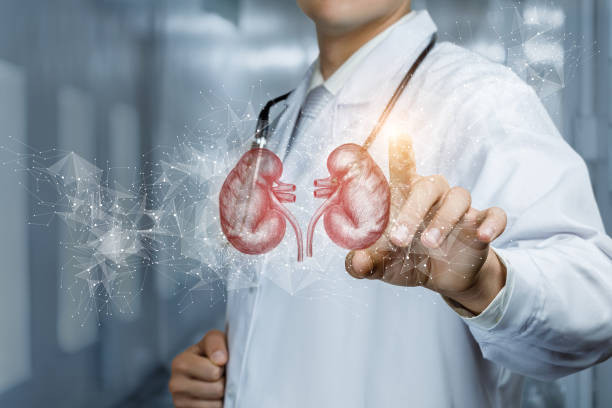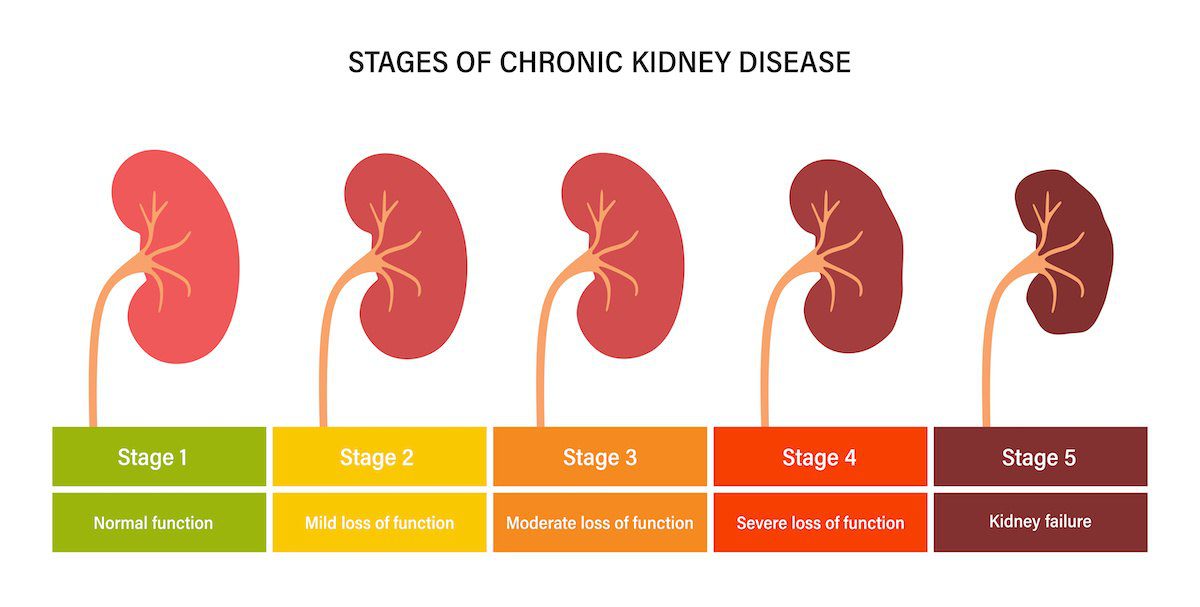Early Warning Signs of Kidney Disease You Can't Afford to Ignore

Kidney disease is a silent health condition that often goes unnoticed until it reaches an advanced stage. The kidneys are vital organs that filter waste products from the blood, balance fluids and maintain electrolyte levels.
When kidney function declines, various signs can indicate the onset of kidney disease. However, many of these early warning signs are subtle, making it easy for people to ignore them. Noticing these signs early can help with timely medical care. This may slow down kidney disease and improve quality of life.
This article emphasizes early warning signs of kidney disease. It also gives practical advice on when to see a doctor.
What is kidney disease?
Kidney disease, or chronic kidney disease (CKD), is the gradual loss of kidney function over time. It can occur for various reasons, such as diabetes, high blood pressure, infections, or autoimmune disorders. When the kidneys do not work properly, toxins and waste can build up in the body, causing serious problems.

Kidney disease progresses through five stages, with stage 1 being the mildest and stage 5 indicating complete kidney failure. Early diagnosis and management are important. They help prevent the disease from getting worse. If it does, patients may need dialysis or a kidney transplant.
Early Warning Signs of Kidney Disease
Kidney disease can be hard to notice early on. However, some symptoms may show that kidney problems are starting. Below are some of the most common early warning signs you should never ignore:
1. Fatigue and Weakness

One of the earliest signs of kidney disease is persistent fatigue or a feeling of weakness. When the kidneys fail to function properly, toxins build up in the blood, leading to a lack of energy. This can make you feel tired even after a good night's sleep.
Kidney disease can also lead to anemia, a condition in which the body has fewer red blood cells. Since red blood cells carry oxygen, reduced levels can lead to constant fatigue.
What to do: If you feel very tired or weak and rest or sleep doesn't help, see a healthcare professional. This is important to check for any health issues, like kidney disease.
2. Changes in Urination Patterns

The kidneys make urine, so changes in urination can be one of the first signs of kidney disease. Common changes include:
- Increased frequency of urination, especially at night, defines nocturia.
- Decreased urine output: You might notice that you are urinating less often or passing smaller amounts than usual.
- Foamy or bubbly urine may show that there is protein in the urine. This can mean the kidneys are not filtering waste properly.
- Blood in the urine, also called hematuria, is a warning sign you should not ignore. It may indicate kidney disease or another serious problem.
If you notice any unusual changes in your urination, seek medical help immediately. This is especially important if you experience pain or discomfort.
3. Swelling in the Hands, Feet, or Ankles

The kidneys help maintain a balance of fluids and electrolytes in the body. When kidney function goes down, extra fluids can build up.
This can cause swelling or oedema, especially in the hands, feet, ankles, or face. This swelling is usually painless, but it can be uncomfortable. It may also mean that the kidneys are having trouble removing extra fluids.
What to do: If swelling doesn't improve after resting or elevating your legs, see a doctor. They can check if kidney disease or another issue is causing it.
4. Shortness of Breath
:max_bytes(150000):strip_icc()/GettyImages-1088258710-081369f6769d4fc7a99da62f5fd872f7.jpg)
Shortness of breath can occur in individuals with kidney disease because of two possible reasons:
- Fluid buildup: When the kidneys cannot filter fluids properly, it can accumulate in the lungs, making breathing difficult.
- Anemia: Kidney disease can cause anemia. This means the body gets less oxygen. As a result, you may feel breathless, even after light activity.
What to do: If you have shortness of breath and don't know why, get medical help right away.
5. Loss of Appetite and Nausea

A loss of appetite and nausea or vomiting can be an early warning sign of kidney disease. When waste products build up in the blood because of lower kidney function, it can cause uremia. This can result in a metallic taste in the mouth, foul-smelling breath, and a general loss of interest in food. Some people may even feel nauseous or vomit after eating.
A long-lasting loss of appetite or nausea might link to your kidney health. This is especially true if these symptoms are not related to digestion. It is best to get a medical evaluation.
6. High Blood Pressure

The kidneys play a crucial role in regulating blood pressure by controlling the body's balance of sodium and water. When damage occurs to the kidneys, they may struggle to maintain this balance, which can lead to high blood pressure (hypertension). Hypertension, in turn, can cause further damage to the kidneys, creating a vicious cycle.
What to do: If you have high blood pressure, check your kidney health often. High blood pressure can cause kidney disease and be a sign of it.
7. Skin Itching and Dryness

When kidney function declines, toxins and waste products build up in the body, leading to skin problems. Chronic itching and dryness are common issues for people with kidney disease. Their skin becomes less hydrated and more sensitive to irritation.
What to do: If you're experiencing persistent itching or dry skin that doesn't improve with moisturizers or over-the-counter remedies, it could be linked to your kidneys, and you should consult a healthcare provider.
8. Muscle Cramps

Kidney disease can cause imbalances in electrolytes such as calcium, phosphorus, and potassium. These imbalances can lead to muscle cramps, particularly in the legs. While muscle cramps can occur for various reasons, frequent or severe cramps should raise concerns about kidney health.
What to do: If you often have muscle cramps and are not due to dehydration or overexertion, talk to a doctor. They can check for possible kidney problems.
When to Seek Medical Attention
If you notice any of the above symptoms, it’s important to consult a healthcare provider for further evaluation. Early detection of kidney disease can significantly improve outcomes by slowing the progression of the disease and preventing complications. Your doctor may recommend blood and urine tests to assess kidney function, such as:
- Glomerular filtration rate (GFR): This test measures how well the kidneys filter waste from the blood.
- Blood urea nitrogen (BUN) measures the urea nitrogen level in your blood. This test shows how well your kidneys are working.
- Urine albumin-to-creatinine ratio (UACR): This test looks for albumin, a type of protein, in the urine. Finding albumin can show kidney damage.
Preventing Kidney Disease
While some risk factors for kidney disease, such as genetics, cannot be controlled, there are several steps you can take to reduce your risk:
- Manage diabetes and high blood pressure. These are the main causes of kidney disease, and it is important to control them with medication, diet, and exercise.
- Stay hydrated: Drinking enough water helps the kidneys filter waste and function properly.
- Avoid using too many medications. Some drugs, like nonsteroidal anti-inflammatory drugs (NSAIDs), can harm the kidneys. This is especially true if taken in high doses for a long time.
- Maintain a healthy diet: A diet low in salt, processed foods, and sugar can help reduce the risk of kidney disease.
Kidney disease is a serious condition that can progress silently, often without noticeable symptoms until the later stages. You can act fast by noticing early warning signs like tiredness, changes in urination, swelling, and high blood pressure. This quick action can help prevent more kidney damage.
Regular check-ups and lifestyle changes are important for kidney health. This includes managing health conditions and eating a healthy diet.
If you are worried about your risk of kidney disease or have any symptoms, talk to a healthcare provider. They can help with evaluation and management.





